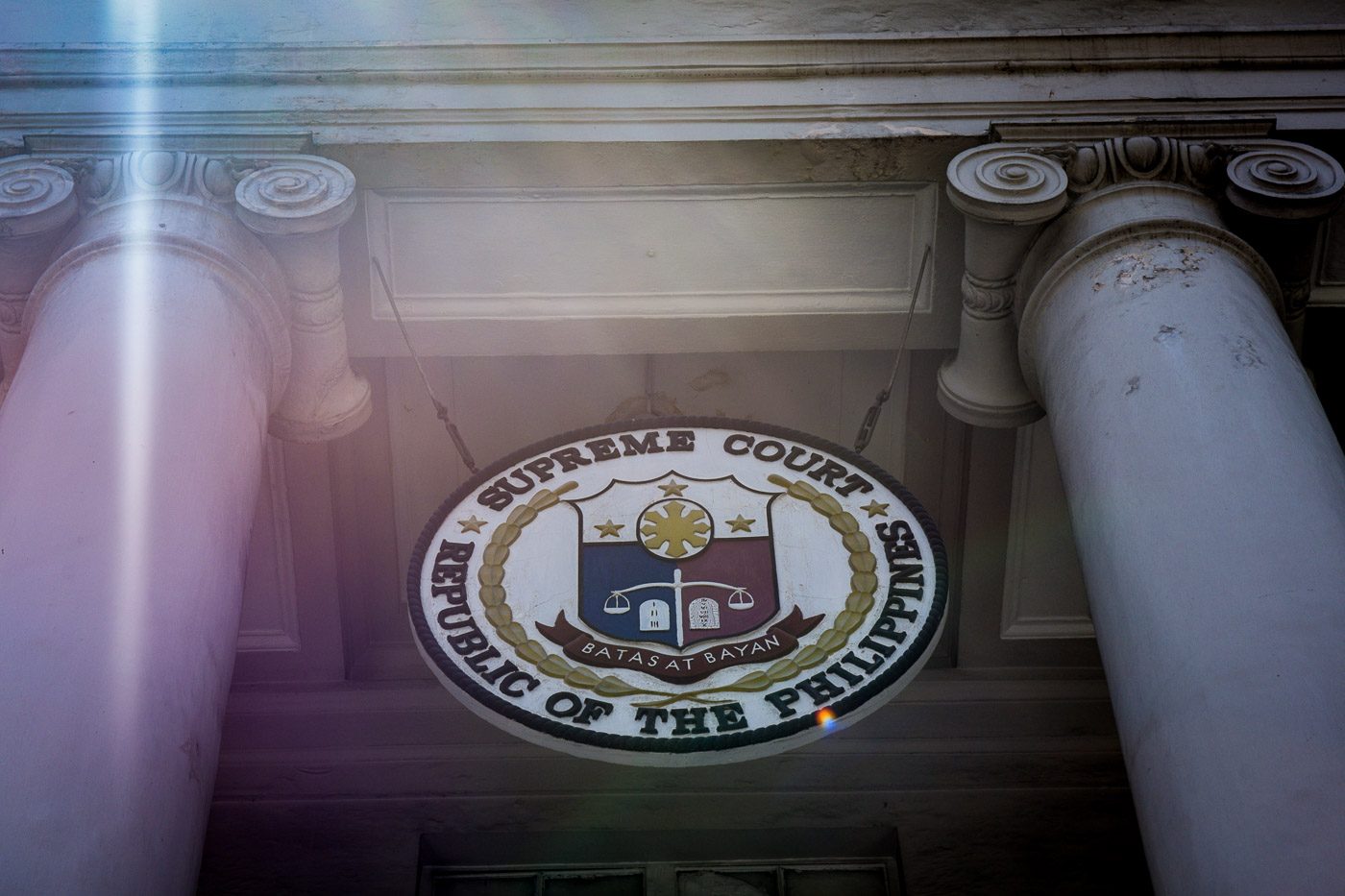SUMMARY
This is AI generated summarization, which may have errors. For context, always refer to the full article.

MANILA, Philippines – Two weeks before the scheduled plebiscite on the Bangsamoro Organic Law (BOL), the discussion on its constitutionality steps into high gear after administration officials sent in their defense of the law to the Supreme Court.
Presidential Anti-Corruption Commission (PACC) Commissioner Manny Luna and the Philippine Association of Islamic Accountants (PAIA) filed an answer-in-interventon submitted to the Supreme Court on Monday, January 7.
An answer-in-intervention is a pleading that an outside party files to defend the position of the respondent, in this case, Malacañang and Congress, from the petition filed against the BOL by Governor Abdusakur Tan II of Sulu.
The official answer of the government was also just recently submitted by Solicitor General Jose Calida.
The Supreme Court has two more en banc sessions – on January 8 and 15 – before the scheduled plebiscite on January 21.
Legal challenge
There are currently two petitions against the BOL; one filed by Tan in October and the other one by the Philippine Constitution Association (Philconsa) in December.
Luna and PAIA’s answer-in-intervention relates to the Tan petition.
In his petition, Tan argued the BOL violated the 1987 Constitution for two reasons. One, Tan said Congress cannot pass an organic law that will replace the present Autonomous Region in Muslim Mindanao (ARMM) without amending the 1987 Constitution first.
Section 1, Article X of the Constitution required the creation of autonomous regions in Muslim Mindanao, which eventually became the ARMM.
Secondly, Tan opposed the BOL’s automatic inclusion of all regions in the ARMM should majority of the ARMM vote in favor of the BOL. Tan said only the specific regions which would vote in favor of the BOL shall become part of the Bangsamoro Autonomous region.
For example, if Sulu – which is part of the ARMM – vote against the BOL then Sulu should not be part of the Bangsamoro Autonomous Region.
Defense
In their petition, Luna and PAIA said Tan wrongly interpreted the Constitution when the latter said the Congress cannot pass a new law that would override the ARMM.
Luna’s petition argued that by passing the BOL, the Congress was merely following Section 20 (9), Article X of the Constitution which provides for the legislative power to “promote the general welfare of the people” of autonomous regions.
Luna added that Tan and his constituents in Sulu did not provide justifications as to why their votes should be classified differently from the ARMM, which they are a part of.
“What sets Sulu apart from the rest of the Bangsamoro provinces to be accorded the electoral right to vote separately in the upcoming plebiscite and their votes counted apart from the votes of the rest of the Bangsamoro?” the petition reads.
Section 18, Article X of the Constitution expressly states “that only provinces, cities, and geographic areas voting favorably in such plebiscite shall be included in the autonomous region.”
Parliament
Tan also opposed the parliamentary form of government in the envisioned Bangsamoro region.
Under Section 2, Article VII of the BOL, the parliament shall be the seat of power which will have the authority to enact laws. Its executive authority will be exercised by the Cabinet led by a chief minister who shall be elected by a majority vote of all the members of parliament.
Tan said this violates the constitutional rule of separation of legislative and executive powers. Tan also said that the manner of voting for the Chief Minister violates the right of the people to directly elect their leader.
Luna’s petition said nothing in the Constitution expressly states that autonomous regions in Mindanao should not be parliamentary.
Section 18, Article X of the Constitution says: “The organic act shall define the basic structure of government for the region consisting of the executive department and legislative assembly, both of which shall be elective and representative of the constituent political units.” – Rappler.com
Add a comment
How does this make you feel?
There are no comments yet. Add your comment to start the conversation.